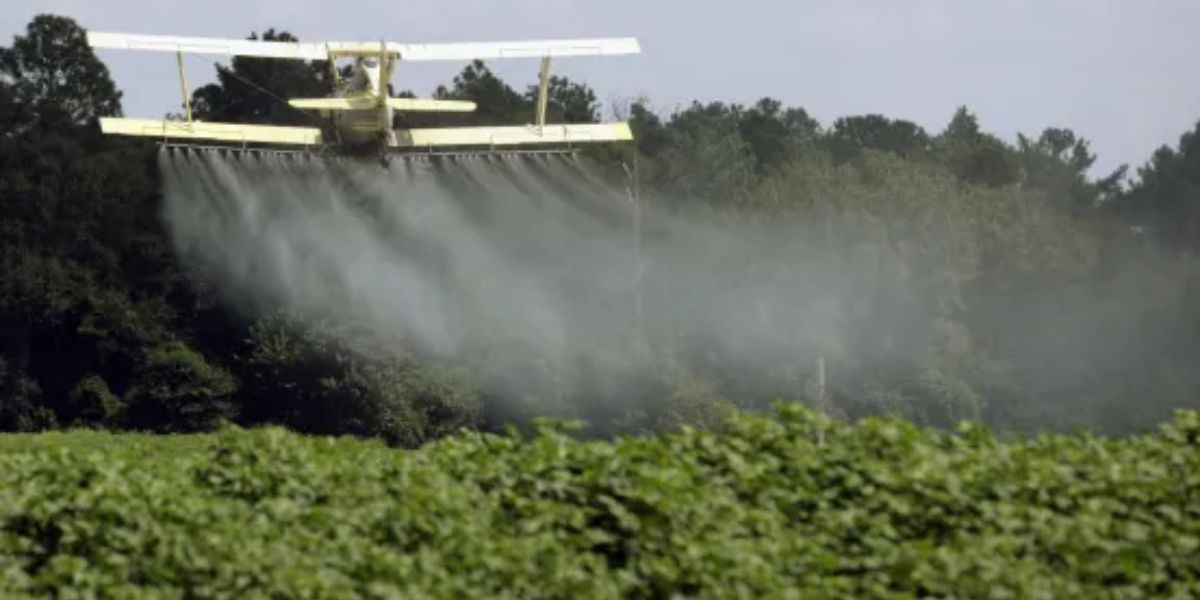Assembly Bill 1963: California’s Move to Outlaw Paraquat by 2026
New California legislation aims to permanently ban paraquat, a potent and commonly used weedkiller linked to Parkinson’s disease and other major health problems.
Assembly Bill 1963, presented yesterday by Assemblymember Laura Friedman (D-Glendale), would prohibit the use of paraquat starting in January 2026. The herbicide, which the US Environmental Protection Agency describes as highly dangerous, is frequently sprayed on almonds, grapes, cotton, and other crops throughout the state.
“Paraquat is banned in more than 60 countries, including those with large agricultural economies such as the United Kingdom, China, Brazil, and members of the European Union,” Friedman said at a news conference on Wednesday. “California should follow their lead.”
California is the nation’s largest user of paraquat, spraying millions of pounds each year, she added. Environmental and public health organizations have linked the substance to Parkinson’s disease, non-Hodgkin lymphoma, pediatric leukemia, and other illnesses.
“California needs to be a leader in eliminating highly toxic pesticides like paraquat,” Friedman stated in a press release. “We need to put public safety and environmental sustainability first and foremost, in keeping with California values.”
A recent Los Angeles Times piece detailing concerns about paraquat highlighted one of over 3,600 lawsuits filed in state and federal courts seeking damages for exposure to the substance.
Paraquat is made by Syngenta, a Swiss corporation controlled by the Chinese government. (The substance is prohibited in both Switzerland and China.). Syngenta categorically denies any ties between paraquat and Parkinson’s disease or other diseases.
“While we have great sympathy for those suffering from the debilitating effects of Parkinson’s and other diseases, there is no scientific basis for this new bill, which fails to account for the thorough assessments undertaken by state and federal regulatory bodies,” the company’s chief communications officer, Saswato Das, wrote in an email.
“We would like to stress that paraquat is safe when used as directed,” Das said in a statement. “In California, paraquat helps farmers control weeds in important crops, removing hazards for field work and preventing weeds from taking water and nutrients from crops.”
However, the current study indicates that farmworkers and low-income Latinos are disproportionately exposed to paraquat in their communities. Kern County is a “hot spot” for paraquat application in the state, with over 5.3 million pounds sprayed there between 2017 and 2021, according to a March analysis by the nonprofit Environmental Working Group.
Nearly 180,000 pounds were sprayed in the Kern County municipalities of Shafter and Wasco, which have a combined population of 50,000 people, more than 80% of whom are Latino. The research states that more than 20% of residents live below the poverty line.
According to the survey, three other mostly Latino areas with high poverty rates—Corcoran, Delano, and McFarland—saw peak paraquat use on agricultural fields.
Ken Cook, President of the Environmental Working Group, described paraquat as a “antique technology in agriculture” that has been on the market for almost 60 years.
“Many of the substances on which we still rely are ancient and out of date. “It’s time for them to go, and paraquat is at the top of the list,” Cook said during the news conference. “Most of the world has already moved on, including the parts of the world where originally paraquat was invented.” Cook expressed confidence that the law will “send a signal to Washington, to the EPA, that they’re falling short here.”
The EPA is examining Paraquat’s approval status. The California Department of Pesticide Regulation is also assessing the product as part of its administrative renewal process, which includes ongoing evaluation and monitoring of pesticide risks and impacts, according to agency officials.
“The department takes seriously the concerns raised regarding potential human health and environmental impacts associated with paraquat use,” spokesperson Leia Bailey said in a statement.
Bailey stated that officials are analyzing over 4,000 public comments and more than 40 scientific papers on paraquat that were submitted to the FDA last year, with many demanding that it “reevaluate, suspend, and/or cancel paraquat product registration.” When the review is completed, its findings will be made public.
During the news conference, Friedman cited a 2019 meta-analysis of 13 research that discovered that those exposed to paraquat are 1.64 times more likely to be diagnosed with Parkinson’s disease – a “huge ratio.”
“I wish we had an EPA and an FDA and a California regulatory environment that was proactive and that said, ‘Before you can use these chemicals, you have to prove that they’re safe’ — but that’s just not how it works,” she told me.
According to Das from Syngenta, paraquat has been the subject of over 1,200 safety investigations.
“Despite decades of investigation and myriad epidemiological and laboratory studies, no scientist or doctor has ever concluded in a peer-reviewed scientific analysis that paraquat causes Parkinson’s disease,” he added. In the meanwhile, many Californians who have been exposed to paraquat are asking for quicker action.
“We’d like to see it banned,” Riverside County resident Tammie Mund told The Times recently. Her husband, Gary Mund, was diagnosed with Parkinson’s disease in 1990 after spraying the substance for several years.
According to EPA standards, only licensed applicators wearing personal protection equipment are permitted to use the pesticide.
According to Friedman, alternatives to paraquat include integrative pest management, biological controls, habitat manipulation, and other measures that are “less destructive to the environment.”
She compared her bill to previous rules addressing per- and polyfluoroalkyl compounds, or PFAs — sometimes known as “forever chemicals” — which are found in water, textiles, and other materials and are known health hazards. She claimed that while the state has taken steps to curb the use of PFAs, it has not gone far enough.
“At its core, this bill is about protecting public safety,” Friedman said in a statement. “This is a very toxic chemical, it’s not necessary, and we need to do more to protect our vulnerable community members — particularly our agricultural workers.”










